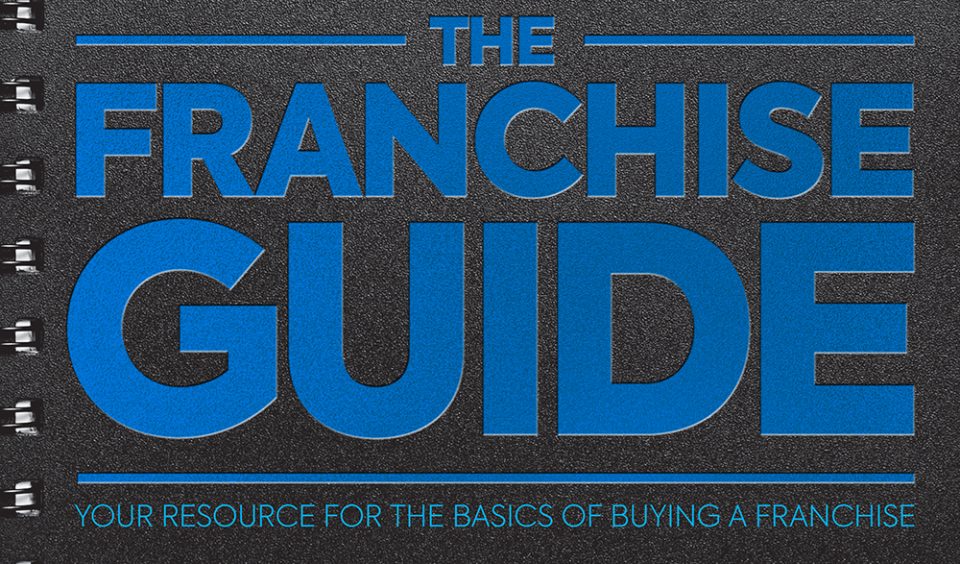If you’re looking to make your business ownership dreams come true, franchising can provide the right path for you to successfully build your business. Before you get started, however, you need to answer some important questions and conduct the proper due diligence so you can make the most informed investment decision.
At the Franchise Canada Show in Toronto this past February, Ned Levitt of Dickinson Wright LLP outlined key considerations prospective franchisees need to take into account before selecting a franchise and signing the Franchise Agreement.
Here are the key learnings from his “Purchasing a Franchise” presentation:
Is franchising for you?
The franchise business model has many advantages, including the opportunity to be in business for yourself, but not by yourself. Franchising, however, isn’t the perfect fit for every entrepreneur, as it requires the franchisee to strictly follow the franchisor’s operating systems and procedures. While some franchises allow for lots of collaboration with franchisees, you ultimately won’t be coming up with your own unique ideas and testing them out. Your fate is also tied strongly to the franchisor, it can cost more, and the performance of other franchisees in the system can have an impact on your own location. Before you embark on a career in franchising, you need to be comfortable with following a system and working together with the franchise head office and other franchisees in the system.
Finding the right franchise
Finding the right franchise to invest in is a critical first step in the franchise process. As you carry out your research, it’s important to choose an industry that interests you, and to look at the different brands franchising in that industry. You also need to ensure you can afford a franchise in this industry – do you have the capital, including working capital and emergency capital, to not only get started, but also to allow you to continue to earn a living in slower times? You can look to available resources, including publications, websites, and tradeshows, to learn more about specific industries and opportunities.
Not all franchises are the same!
As you hone in on your future franchise, there are many factors to consider. Do you want to partner with a mature system with years of experience, with a strong, established operating system in place? Or do you want to join a new franchise system, where you’ll have an opportunity to have more input and help the brand grow? Remember that there’s no one-size-fits-all approach to franchising – each franchisor is unique, franchise agreements differ between systems and franchisees, and the system procedures and their enforcement are not uniform across all brands.
Advantages of buying a franchise
There are many advantages to joining a franchise system instead of starting your own independent business. You have access to better knowledge, quicker, and can benefit from group purchasing and advertising power. You can also make use of the franchisor’s goodwill and trademarks and will benefit from the brand’s access to and investment in research and development as you build your business. When it comes to site selection, the franchise head office team will also be able to assist you in securing the best locations and terms.
Franchisee rights and obligations
The relationship between a franchisee and the franchisor is determined by a franchise agreement. It’s important to remember:
- The franchise agreement is binding
- That the courts view franchisees and franchisors, in theory, as equals
- What disputes can arise
- Ineffective use of the advertising fund
- Lack of support
- Poor selection of the location
Franchise disclosure in Ontario: The Arthur Wishart Act, (Franchise Disclosure), (2000)
The relationship provisions in The Arthur Wishart Act in Ontario include:
- 3 Fair Dealing
- 4 Right to Associate
- Right of action for breach of these provisions
Disclosure Requirements s.5
As part of the disclosure requirement, the franchisor must deliver the disclosure document 14 days before any payment is made to the franchisor or the signing of the franchise agreement or any agreement relating to the franchise. The agreement must be delivered personally, by registered mail, electronically, or other prescribed method.
The disclosure document includes:
- All material facts
- Prescribed items
- Financial statements, unless exempt, to a review engagement standard of CICA
- Copies of all agreements
- Statements as prescribed in s.4 of regulations
- Statement regarding mediation in s.5 of regulations
- Certificates
Material fact: Includes any information about the business, operations, capital or control of the franchisor or franchisor’s associates, or about the franchise system, that would reasonably be expected to have a significant effect on the value or price of the franchise to be granted or the decision to acquire the franchise.
Material changes: Written statement of material changes must be delivered as soon as practicable before signing or paying (“Material Change” is defined like Material Fact). The disclosure document may be delivered at any time prior to the 14-day limit.
Rescission S.6
- Right of rescission for:
- Late or defective delivery (60 days)
- Non-delivery (2 years)
- Refund money received
- Repurchase inventory, equipment, and supplies at original price paid
- Compensate franchisee for losses in acquiring, setting up, and operating
The franchise agreement
The franchise agreement includes:
- Purchases
- Front-end franchise fee
- Ongoing royalties
- Standards of operations
- Manual
- Trademarks
- Assignment
- Trade secrets
- Non-competition
- Termination
- And more
Other agreements
Other agreements may be included in the franchise package, including:
- Applications and reservation agreements
- Leases and subleases
- Equipment lease
- Sign leases
- Security agreements
- Personal guarantees
Investigate, investigate, investigate
It’s critical to carry out proper and thorough due diligence with the help of franchise professionals, including a franchise lawyer, accountant, and banker. It’s also important to speak with other franchisees in the system, along with suppliers, landlords, and customers, to get their impressions of the franchise system before you make your final investment decision.
Edward (Ned) Levitt
Partner
Dickinson Wright LLP
nlevitt@dickinsonwright.com


